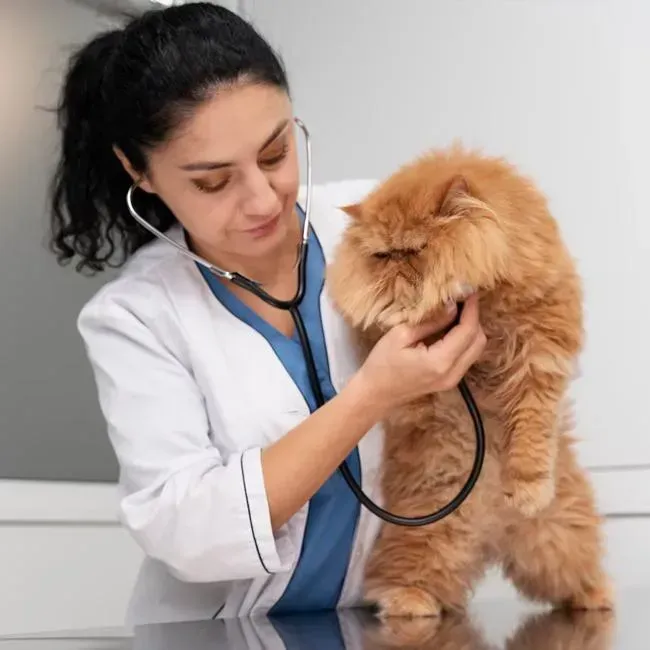Cat Heartworm Prevention & Treatment in Stockton, CA
Heartworm disease is a serious and potentially fatal condition affecting cats. Although heartworms are more common in dogs, they can infect cats too, leading to severe health issues. In this article, we'll cover everything you need to know about cat heartworms, from causes and symptoms to prevention and treatment options.
What Are Cat Heartworms?
Heartworms are parasitic worms that live in the heart, lungs, and blood vessels of infected animals. Transmitted through mosquito bites, these worms can cause significant health problems in cats, even though cats are not their preferred hosts. When heartworms infect cats, they don't develop as fully as in dogs but can still lead to respiratory issues, heart problems, and even death.
Symptoms of Heartworm Disease in Cats
Symptoms of heartworm disease in cats can be subtle or severe and may include:
Coughing: Persistent or intermittent cough that doesn't go away.
Difficulty Breathing: Rapid or labored breathing, especially during activity.
Vomiting: This can occur sporadically and without any apparent cause.
Lethargy: A general lack of energy or interest in activities.
Loss of Appetite: Cats may eat less or stop eating altogether.
Sudden Collapse: In severe cases, a cat may collapse due to complications.
Since many of these symptoms can mimic other conditions, it's important for cat owners to consult a veterinarian if they notice any of these signs.
How Is Heartworm Disease Diagnosed in Cats?
Diagnosing heartworm in cats can be challenging, as the typical tests used in dogs are not always effective in cats. Veterinarians may use a combination of blood tests, X-rays, and ultrasounds to check for signs of heartworms in cats.
Treatment Options for Heartworms in Cats
Unfortunately, there is no specific treatment for heartworms in cats, unlike in dogs. The focus of treatment is often on managing symptoms and preventing secondary complications. Treatment options may include:
Supportive Care: Oxygen therapy, fluid therapy, and anti-inflammatory medications to ease symptoms.
Monitoring: Regular veterinary check-ups to keep track of the cat's health and heartworm status.
Surgical Intervention: In rare, severe cases, surgery may be an option to remove adult heartworms.
Preventing Heartworm Disease in Cats
Prevention is the best approach to avoid heartworm disease in cats. Here are some recommended steps:
Heartworm Preventatives: Monthly preventatives, available in tablet or topical forms, can help protect cats from heartworm infections.
Reduce Exposure to Mosquitoes: Since mosquitoes transmit heartworms, reducing your cat's exposure to mosquitoes can lower the risk.
Regular Vet Checkups: Regular visits to the veterinarian for heartworm screening can help catch any signs of infection early.

Testimonial
What They Say

Was looking for a new Vet near me in Stockton and very happy with Walker Vet Hospital! Customer service, informative, and compassionate with staff and doctors. Give a 10 out of 10. Taking all three of my dogs there happily.


Rae W.

Good value and knowledgeable. No waiting most of the time. Always 2-3 doctors at a time and weekend care available which is appreciated. All of our three dogs been going to Walker Vet in Stockton for some time now. Never any complaints.


Nick G.

Review Us!
Visit our Google review page to share your feedback

Review Us!




